The Gift of South Dakota
Subscriptions to South Dakota Magazine make great gifts!
Subscribe today — 1 year (6 issues) is just $29!
A Somber Anniversary
Dec 26, 2019
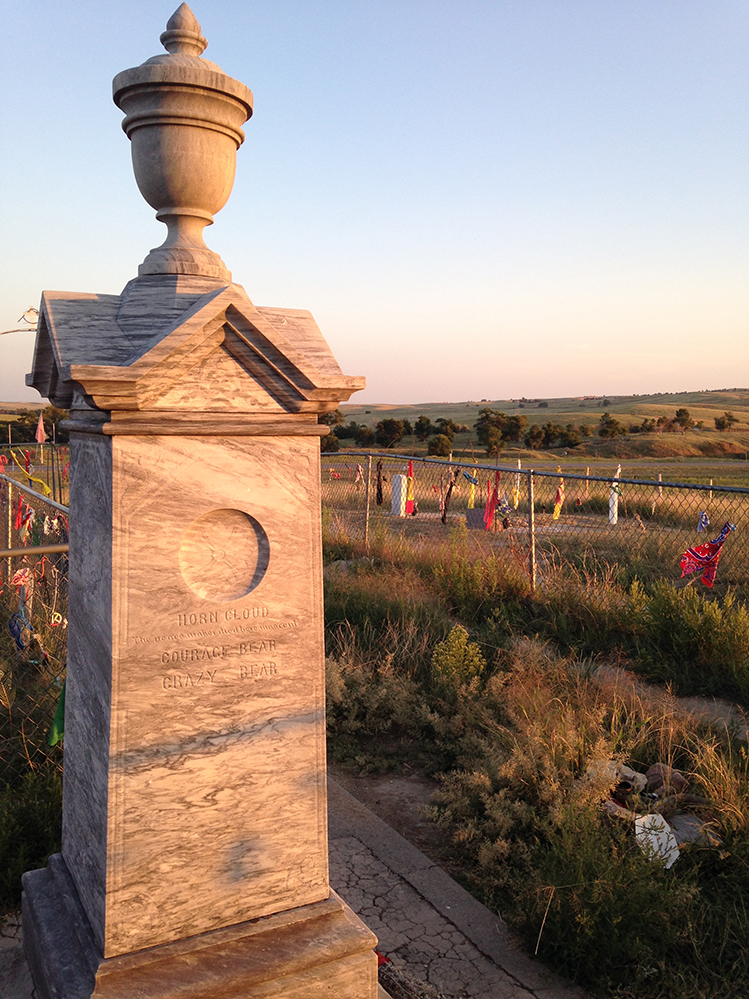 |
| An estimated 146 of the roughly 300 Lakota men, women and children who were killed during the Wounded Knee Massacre of 1890 lie buried in a mass grave. Survivor Joseph Horn Cloud traveled the country raising funds for a stone marker that was placed at the grave site in 1902. |
We were about 30 minutes late getting to Leonard Little Finger’s house because we had gotten lost on the Pine Ridge Reservation. After nearly bottoming out our Chevy Impala on a road that could barely be described as minimum maintenance, we knew we were on the wrong track. We headed back to Oglala, where some friendly youth at a school told us that Leonard was their Lakota language teacher. They kindly gave us directions, and soon we found Little Finger in his home just on the edge of town, patiently waiting for us.
The first things we noticed upon going inside were photographs — dozens of them — hanging on his walls. Grandchildren and great-grandchildren smiled down at us. But there were also black and white images, and they were clearly very old. One was a photo of his paternal grandfather, John Little Finger. Another showed his maternal grandparents, Joseph Horn Cloud and Millie Bald Eagle. Next to that was a photo of Horn Cloud’s brothers, Daniel White Lance and Dewey Beard.
They were all survivors of the Wounded Knee Massacre, which took place on Dec. 29, 1890. We had come to Pine Ridge to find people just like Leonard: descendants of Wounded Knee survivors who could tell us stories that their ancestors passed down about that day. Little Finger was the first person we met and held by far the strongest connection to the massacre. “I had 39 relatives there at the time,” he told us. “Only seven survived.”
In all, roughly 300 Lakota men, women and children died at the hands of the U.S. Army’s Seventh Cavalry. They were members of Chief Big Foot’s band, who fled the Standing Rock Reservation after Sitting Bull’s death on Dec. 15. They were traveling to a peace conference with Chief Red Cloud at Pine Ridge when the cavalry met them near Wounded Knee Creek.
The Little Finger family name stems from an incident that occurred during the massacre. According to family oral history, as soldiers explained their plans to bring the Lakota to Pine Ridge, one cavalryman said he would show them what would happen if they tried to run. He shouted a command and another soldier lowered his weapon, which they claimed was not loaded. “When he pulled the breach back, my grandfather saw a bullet go in there, and it locked,” Little Finger told us. “Then he barked again, and they all came up.” That’s when the 14-year-old John Little Finger swung and knocked the soldier to the ground, breaking his little finger. The boy ran, and soon gunfire erupted.
We also met cousins Ingrid One Feather and Fred Stands. Their great-grandfather, Peter Stands, survived the massacre and lived with several others in a cave for much of the following year. One Feather said she knows that Stands’ wife and two of their children were killed, but he rarely talked about that day because he feared reprisals from the government.
Myron Pourier is the great-grandson of the Lakota holy man Black Elk, who also survived the massacre. Much of Black Elk’s recollections were published in a book, Black Elk Speaks, in 1932, but one story not recorded in those pages tells of Black Elk’s encounter with Red Willow two days after the massacre. A soldier, still pursuing Lakota warriors, shot Red Willow’s horse from under him. Black Elk lifted Red Willow onto his own horse and together they rode to Red Cloud Agency. “We’re still close to the Red Willow family,” Pourier said.
These families, and many more, will forever remain connected by the tragedy. Dealing with it in their daily lives can still be burdensome, even after 129 years. “Let’s say you look at time as a cloth,” Little Finger explained. “Then along comes some violence and tears it. You can stitch it, but you can never tear the threads that consist of that fabric. I come to that every day. I already know the impact that it had, but it can be historical trauma if you don’t understand it and know what it was. There’s a spiritual side to it. There’s no one person who represents this fabric. It just depends on who you talk to. One is going to be very historically traumatized, and the other is going to say, ‘It happened. It’s over, and we have to get on with life.’ And all in between.”
December in South Dakota can a joyous month for families gathered to celebrate the holidays. But it also marks a somber anniversary for the men and women who still live with the effects of our state’s darkest day.


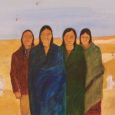

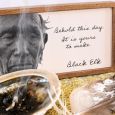

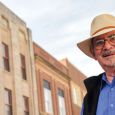
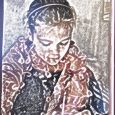
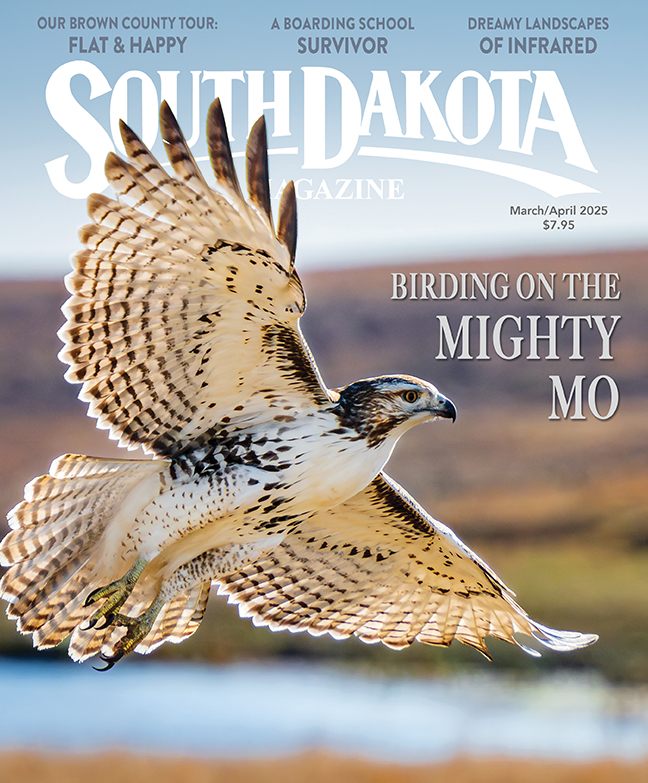

Comments
US governments doing and should not have happened.